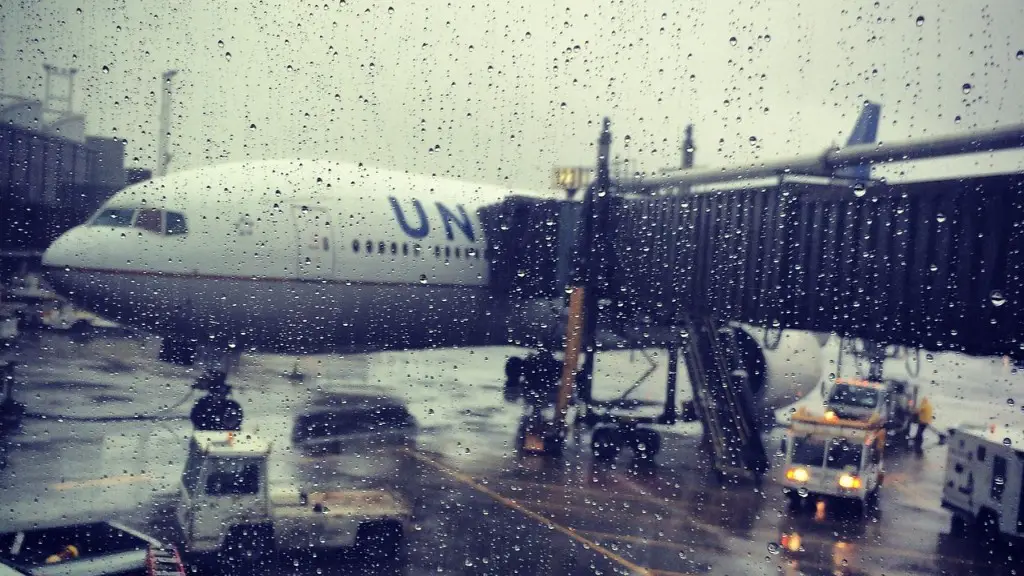If you’re pregnant and planning to travel, you may be wondering if your travel insurance will cover any unexpected complications. The good news is that most travel insurance policies will cover pregnancy, but there are some things to keep in mind. First, most policies have a limit on how far along in your pregnancy you can be when you purchase the policy. Second, you’ll likely need to purchase a policy that includes emergency medical coverage. And finally, be sure to read the policy carefully to understand what is and is not covered.
It depends on the insurer and the policy, but some travel insurance policies do cover pregnancy. Be sure to check with the insurer before purchasing a policy to see if it covers pregnancy.
Is pregnancy a covered reason for travel insurance?
Pregnancy can be a covered reason for trip cancellation if it occurs after the effective date of coverage. This means that if you have to cancel your trip due to pregnancy complications, your travel insurance can cover the financial losses.
If you’re pregnant and planning to travel, be aware that most travel insurance policies exclude pregnancy as a covered reason to cancel a trip. This also includes childbirth if you were pregnant at the time the policy was purchased. So if something happens and you need to cancel your trip, you may not be covered. You may be able to purchase a separate policy that covers pregnancy, but it’s important to read the fine print to make sure you’re covered for everything you need.
Is pregnancy a preexisting condition for travel insurance
No pregnancy is not a pre-existing condition; however, it is a foreseen condition. Normal, healthy pregnancy is never eligible for coverage under a travel insurance plan – even if the pregnancy did not exist before the purchase of a plan.
There are no specific airline rules for flying while pregnant, but it is generally recommended that pregnant women consult with their doctor before flying. Some airlines may have specific guidelines for pregnant women, so it is always best to check with the airline before booking a flight.
Do you have to tell airlines you are pregnant?
The airline may have different policies regarding flying while pregnant, so it is best to check with them before booking a flight. Most airlines won’t let you fly if you’re within about a month of your due date, but some may allow it with a letter from your GP or midwife.
If you are pregnant and plan to travel by air, it is important to be aware of the potential risks involved. After week 28 of pregnancy, most airlines will require a letter from your doctor or midwife confirming your due date and that you are not at risk of any complications. Long-distance travel (longer than 4 hours) carries a small risk of blood clots (deep vein thrombosis (DVT)). While the risk is low, it is important to be aware of the signs and symptoms of DVT so that you can seek medical attention if necessary.
What medical conditions are not covered by travel insurance?
Epilepsy, Heart conditions, Hernia, High blood pressure and high cholesterol are all medical conditions that can potentially be very serious. If you or someone you know has any of these conditions, it is important to seek medical attention and get treated as soon as possible.
While most travel medical insurance plans do not provide coverage for pregnancy or childbirth, there are some that specifically cater to pregnant women and new mothers. These plans typically provide coverage for maternity care, delivery, and post-natal care. If you are pregnant and planning to travel, it is important to check with your insurance provider to see if they offer this type of coverage.
What is the due date for flying when pregnant
At 36 weeks pregnant, your health care provider may advise against flying. Some airlines don’t allow pregnant people to fly after 36 weeks. The airline may also require a letter from your health care provider that states how far along in your pregnancy you are and whether flying is advised.
There are a few things to avoid during pregnancy in order to keep both mom and baby safe and healthy. Smoking, drinking alcohol, eating raw meat, and eating unpasteurized milk products are all off-limits. Additionally, it’s best to avoid sitting in a hot tub or sauna, and to limit caffeine intake. And finally, while it’s not necessarily dangerous, pregnant women should avoid cleaning the cat’s litter box to minimize their exposure to toxoplasmosis.
Can you fly if your less than 12 weeks pregnant?
As the risks associated with flying during the first 12 weeks of pregnancy are relatively high, it is advisable for pregnant women to avoid flying during this time. Additionally, as many pregnant women may experience pregnancy-induced nausea and fatigue during this time, flying could make these symptoms worse and make travel uncomfortable.
If you fail to disclose information on any condition, it could invalidate future claims related to that condition. Cover for many conditions may also depend on whether you have needed medical treatment within a certain period (eg 12 months) before a relevant date.
What are various medical reasons that covered by travel insurance
Travel insurance is a must if you are planning on traveling. It can cover the costs of emergency medical or dental care, as well as evacuation to the nearest hospital or back home. This type of insurance can give you peace of mind while traveling, knowing that you are covered in case of an emergency.
As the name suggests, travel insurance is a type of insurance that cover different risks while you are travelling. It is always better to be safe than sorry, and travel insurance can give you peace of mind while you are on your trip.
There are many different types of travel insurance, so it is important to choose the one that is right for you. Some policies will cover medical expenses, lost luggage, flight cancellations, and other losses that a traveller can incur while travelling. Other policies may only cover one or two of these risks.
Before you purchase a travel insurance policy, make sure to read the fine print and understand what is covered. That way, you can be sure that you are getting the coverage you need.
Can I get international maternity insurance if I am already pregnant in USA?
There are many different insurance plans available for maternity coverage, but they will all vary based on the coverage that is provided. Some plans may only cover the cost of the delivery, while others may cover the cost of pre and postnatal care. Be sure to read the fine print on any plan that you are considering so that you are aware of what is and is not covered.
If you were pregnant at the time you applied for new health coverage, you cannot be denied coverage due to your pregnancy. This is because pregnancy is not considered a pre-existing condition under the Affordable Care Act (ACA). Therefore, all Marketplace plans must cover pre-existing conditions you had before coverage started.
Why do airlines ask if you are pregnant
The risk of developing a deep vein thrombosis (DVT) is increased when flying and with longer flights. This is because you are sitting down for a long time, which can cause the blood to pool in your legs and lead to clotting. This is also a risk for pregnant women and for up to six weeks after giving birth. If you are concerned about developing a DVT, talk to your doctor before flying.
There are a few groups of people who are more likely to get upgraded than others when they travel. Honeymooners and pregnant women are often at the top of the list, followed closely by birthday celebrants. For those travelling alone or in couples, being willing to sit separately often gives you the best chance of an upgrade.
Warp Up
No, travel insurance does not cover unexpected pregnancy.
There is no one-size-fits-all answer to this question, as policies vary greatly. However, it is wise to check with your travel insurance provider to see if your policy covers unexpected pregnancy. Many policies will provide some coverage for medical expenses related to pregnancy, but it is always best to check in advance to be sure.





